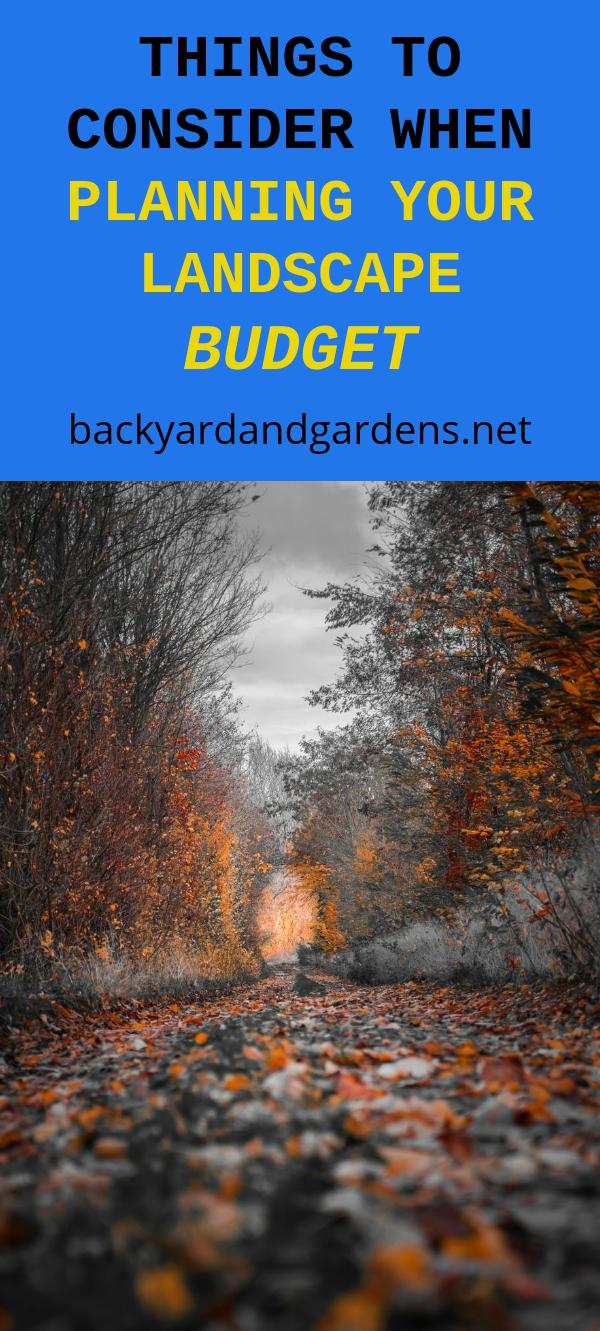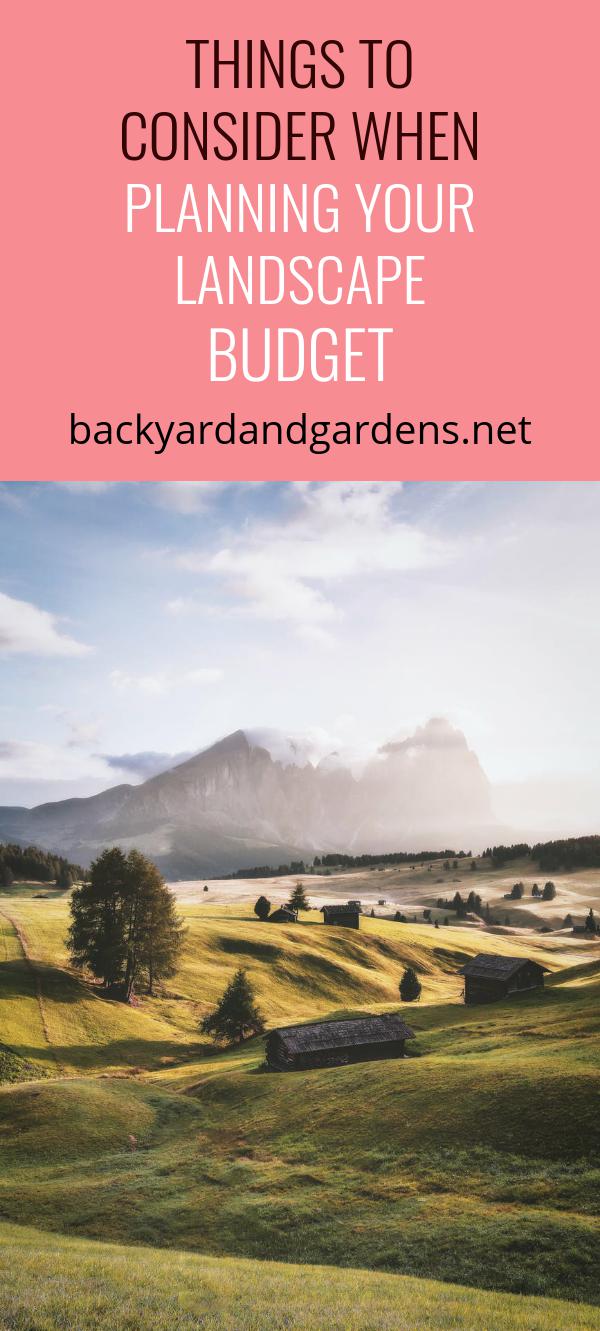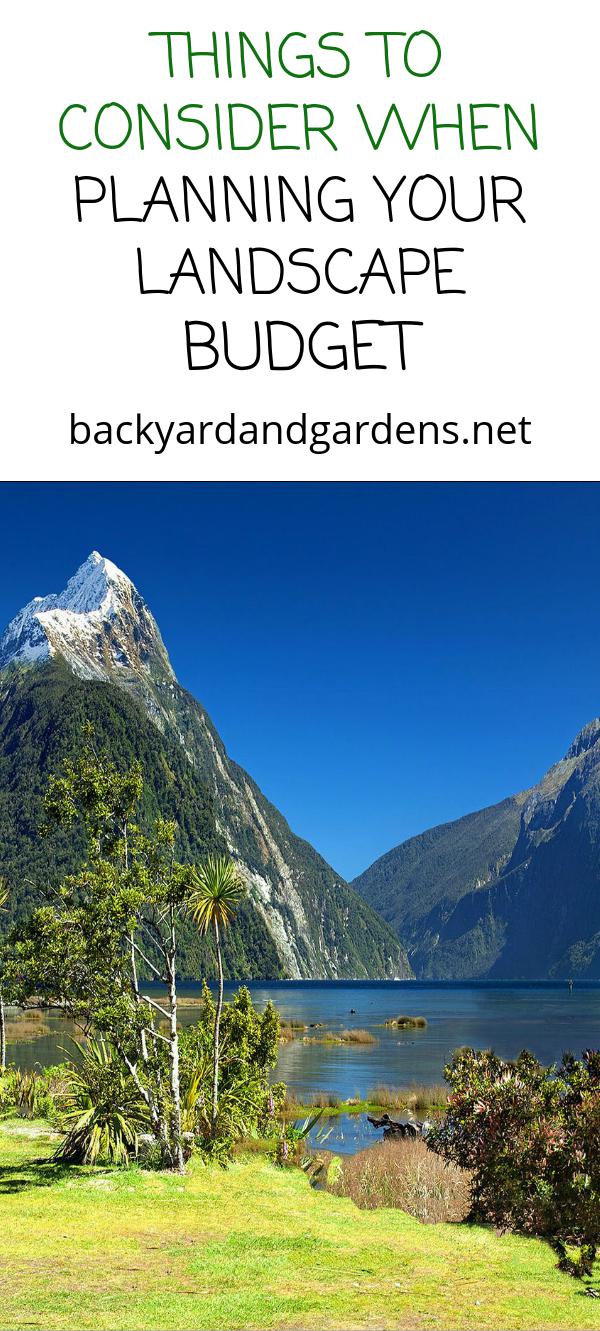Things To Consider When Planning Your Landscape Budget
Any landscape project requires planning, especially if money is an object, as it is for most people. Creating your landscape budget will help you figure out how much you can spend on building your landscape, and it will help you make an investment in your home that can yield great returns. When you make your budget, it is important to remember that your costs do not end with the initial costs of building the landscape. You need to figure in the cost of maintenance and any other related and recurring costs that are a part of the landscape experience, whether all you have is a lawn or whether you have an elaborate design.
When you make your budget, you need to take into account everything. This can be very annoying and tedious, but in the end, it will help you out. You won’t be surprised at how much everything costs if you have estimates on costs and if you have stuck to your reasonable budget. It helps to think of each portion of the landscape as an individual project and create a budget for each project. Then add it all up to see if you can afford the total. You can adjust what you want for the flowerbed if that will bring your total cost down, or choose to forego one of the statues you had planned to place.

You need to figure out which plants you want, and whether they will look good in your landscape. You should come up with a variety of plants and then investigate their costs. Find out what types of fences are available and create a budget based on something that you like, but that does not cost a lot. Know what materials you will need to build a patio, deck, or arbor. Then figure out how much those materials will cost, and whether you can get them any cheaper.
When creating your budget, keep in mind the landscape that you want. Are there special fixtures you desire? What elements can you live without? You need to create your vision of the landscape and then alter it according to your monetary abilities to support the vision. Landscape design software can help in this, as you can easily adjust your plan and your ideas to fit with your budget. You can figure out the approximate costs of certain aspects of your desired landscape by talking to professionals or by looking online to find what is needed for similar projects. If something is going to be too expensive, you need to either get rid of it altogether or adjust a few other elements to compensate for the increased price.
Plants are likely to be the main elements of most landscapes. When choosing plants, you need to consider the size and growth rate. Many people choose cheap, fast-growing plants and do not take into account future maintenance costs. Fast-growing plants typically cost more in maintenance because they get bigger faster. They require more pruning, and if you are not careful can make your landscape look overgrown. Slower growing plants may force you to adjust your initial views of spending but will save you money over the long run. Part of your budget should include future maintenance costs, and you should get estimates on those, for a variety of possible plants, when planning your landscape budget.

Another decision you have to make is how much of the work you are going to do yourself. There are many landscape projects that can be done without professionals, and still, look very nice. If you are worried about pouring concrete for walkways, construct your walkways out of flat rocks. Part of creating your landscape budget is factoring in the cost of labor. If you do it, then it certainly adds to the feasibility of doing more for less.
Once you have created your budget, keeping everything in mind, and making a detailed list of how much you want to spend for each individual project, you can begin working on the projects. Try to save as much money as you can, making it a goal to come in at or below budget. If something looks to be costing more than you budgeted for that project, you need to scale back or adjust another project. Creating a budget does no good if you do not stick to it, and it can come back to haunt you later if you disregard the budget you made.
